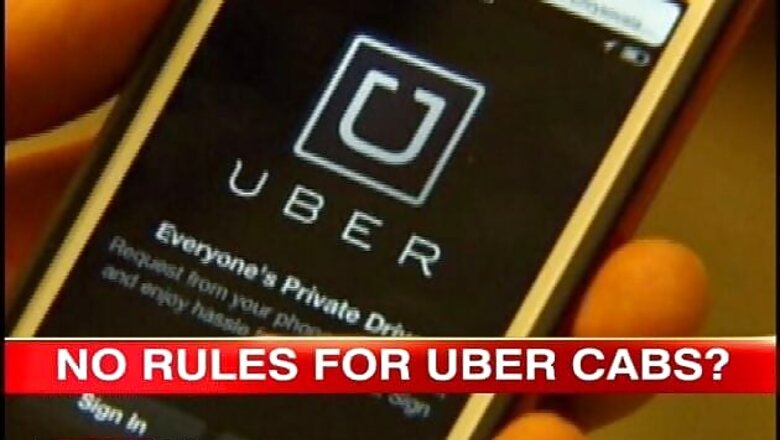
views
New Delhi: The recent rape case allegedly by a Uber cab driver has raised the issue of security in the radio cabs which until now were believed to be safe.
The radio cabs in India are governed by guidelines framed by the Transport department. The norms framed by the government in 2006 under the Radio Taxi scheme state that every cab owner must own a fleet of at least 500 cars, along with parking and office space.
A GPS based tracking device must be in constant communication with the Central Control unit while the vehicle is on duty. The licensee is responsible for police verification of drivers, and must ensure that they are reliable.
However, none of these rules apply to services like Uber and Ola, who are known as aggregators. Aggregators merely provide an online platform to link the customer to the driver.
Such companies do not own the cabs and are not obliged to verify the driver's credentials. A GPS device is also not mandatory according to the rules.
In fact, Uber is based in San Francisco and operates in India out of its Netherlands arm. The payments made to Uber go to its unit in Netherlands. Uber, in turn, deducts its revenue share and redirects the money to the taxi driver in India. The company also does not need to pay any service tax in India.
With lack of alternatives in public transport, aggregator services in India are on the rise. However, concerns over passengers' security is one of the reason why it's time for the government to step in to regulate the industry.




















Comments
0 comment